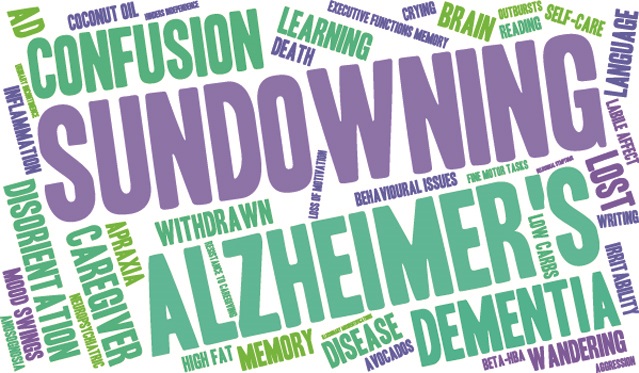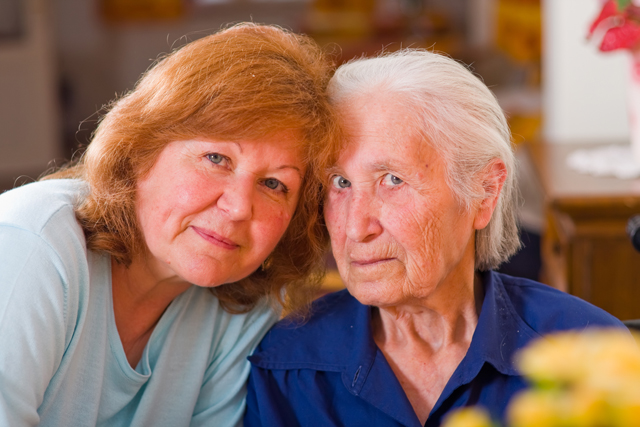Sundowning is one of the symptoms of dementia and Alzheimer’s, and it is characterized by agitation and confusion as the sun goes down during the afternoon and the evening. Home care experts have noted the symptom affects mainly those with advanced or mid-stage dementia. There are ways to help you deal with this, and it will help both the caregiver and the individual afflicted with dementia.
What Leads to Sundowning?
There are several factors that may contribute to sundowning such as mental and physical exhaustion as the day comes to an end. We all get tired from working and activities all day, and older people with dementia and related conditions also go through it. Another possible reason is Alzheimer’s might be causing a change in the person’s internal clock, leading to biological confusion between night and day.
In-home care studies also suggest the increased shadows and reduced light may cause people with Alzheimer’s to make mistaken assumptions about things they see, leading to fright and confusion. It could also be a reaction to dealing with caregivers, who at the end of the day are tired and not as responsive during the morning.
Adults don’t need to sleep as much as younger people, so they are usually up at night. Conversely, the agitation could also spring from disorientation due to difficulty distinguishing dreams from reality.
How to Deal with Sundowning
Here are some suggestions to help you deal with sundowning.
- Make sure your home is lit up well during the night. Things that are familiar to the person with dementia during the day may look different at night and this could precipitate agitated behavior. By keeping the environment where they are well lit, it could set them at ease.
- Home health care helpers and caregivers should take steps to make the sleeping environment as comfortable as possible. Elderly people afflicted with Alzheimer’s have difficulty sleeping as it is, so try to make them as comfortable as possible.
There are many ways to do this, and there are no hard and fast rules as people have different preferences. However there should always be night lights by the bed so the individual is safe. The doors and windows have to be secure as well. People with Alzheimer’s or dementia can wander off, so it’s a good idea to install door and motion sensors as they’ll notify you if he/she wanders off.
- Maintain a Schedule: a daily routine helps minimize their stress. There should be a schedule for their meals and meds, and from waking up till they go to bed, a daily regimen helps reduce restlessness.
Senior care involves careful management of their meals, and the general rule is to steer clear from large dinners and stimulants. Don’t give them coffee or any form of caffeine in the morning. Sweets and alcohol in the morning should be avoided as well. Save the big meals for lunch and keep dinner small. A large evening meal is difficult to digest and will keep the person up, so make certain their meal leave them feeling full but not to the point it affects their sleep.
Activity Helps
If we rest the entire day we will end up awake at night, and this holds true for those with Alzheimer’s as well. Afternoon naps should be avoided as it will keep them awake during the night; instead you should prepare activities during the morning and afternoon. These can include appointments with their doctor, taking strolls, bathing and so on.
Exercise during the morning is ideal. However, exercising four hours prior to their bedtime should be avoided: when we exercise, our brain releases BDNF (Brain-Derived Neurotrophic Factor), which make us feel alert and awake, so it’s not advisable to do it when they’re supposed to go to sleep.
Final Reminders
An important part of sundowning in elderly care is knowing the triggers and minimizing distractions. TV, music, people coming and going etc. in the evening, all of these might be triggers for sundowning, so you need to take steps to prevent this. When it is time for the person to go to bed, remove these distractions.
Sundowning is a common symptom of Alzheimer’s, but that doesn’t mean you’re helpless. Take the right approach and you’ll make things easier for you and your loved one.
For caregiving help or advice, please contact us. We’d be happy to help you. For weekly caregiving tips from Home Helpers, visit our blog.
Home Helpers of San Ramon is a locally-owned, trusted home health care agency and offers quality, compassionate senior in-home care services including home care assistance, personal care, companion care, respite care, Alzheimer’s & dementia care as well as homemaker services in San Ramon, Danville, Diablo, Moraga, Pleasanton, Castro Valley, Sunol, and Dublin.










